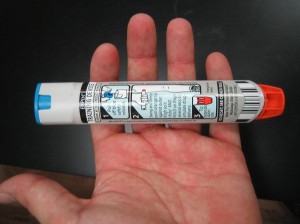Just like with almond, walnut and other tree nuts, cashew allergy is one of the prevalent food allergies that affect both adults and children. Similar to peanut, cashew can trigger the most severe allergic reactions even if the individual is only exposed to a small amount either through ingestion, inhalation or direct exposure. Remember that cashew cross-reacts with pistachio, thus those who have cashew allergy tend to have an allergic response to pistachio. Cashew is oftentimes a hidden component in certain foods such as ice cream, Asian dishes and even cakes. It is important to seek immediate medical care if you suspect that an individual is experiencing an allergic reaction to cashews.
Hives and swelling
It is important to note that hives and swelling are the mildest symptoms linked with cashew allergy. Primarily, there is itchiness or tingling sensation in or around the mouth within minutes after eating or directly exposed to cashew or foods that contain the nut. The elevated, itchy, red-colored welt in different sizes can manifest randomly on the skin. Take note that hives and swelling typically resolve within a day or two. You can consult a doctor for measures that can help manage the itchiness and discomfort during an allergic reaction.

Gastrointestinal symptoms
Individuals who have cashew allergy can end up with abdominal cramps or vomiting right away as the body tries to eliminate the offending food. The severe symptoms include projectile vomiting, diarrhea, nausea or difficulty swallowing. An inflamed tongue or throat can clog up the airway of the individual or there might be swelling within the digestive tract.
Respiratory symptoms
Remember that an allergic reaction to cashew can trigger symptoms of asthma or hay fever once the airborne allergens are inhaled. Stuffed or runny nose, itchy nose, itchiness in the roof of the mouth and coughing are the usual symptoms of an allergic response in the nasal passages. The wheezing is an indication of constricted airways. The other symptoms of an asthma attack caused by cashew allergy can include tightening of the chest, shortness of breath and chest pain.
Anaphylaxis
Cashew is known to trigger a severe allergic reaction known as anaphylaxis. The symptoms of this reaction include swelling of the throat, rapid pulse rate, lightheadedness, fainting and loss of consciousness. The inhalation or ingestion of small amount of cashew can instigate anaphylaxis. Remember that this can develop abruptly and can be life-threatening, thus it is vital to seek immediate medical care. In some individuals, they usually bring along an EpiPen that is administered during the initial sign of a severe reaction. Once epinephrine is administered, the individual must be taken to the hospital right away. If you want to be prepared to handle this type of reaction, it is best to enroll in a course on first aid today.
